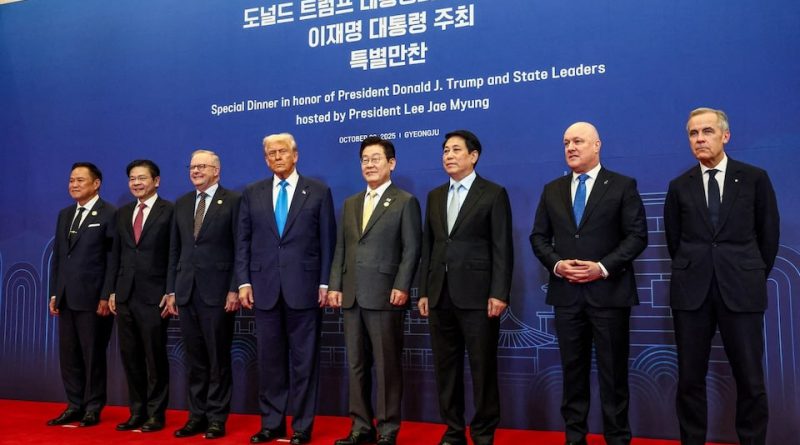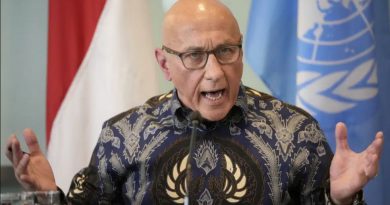Asia-Pacific Leaders Unite to Strengthen Global Trade Stability
Gyeongju – South Korean President Lee Jae Myung called on Asia-Pacific nations to come together for shared prosperity, emphasizing cooperation and unity amid global economic shifts.
Speaking at the annual Asia-Pacific Economic Cooperation (APEC) summit held in Gyeongju, President Lee said that the world stands at a crucial inflection point where collaboration, innovation, and mutual respect will determine the direction of future global trade.
The summit brought together key leaders from across the region, including U.S. President Donald Trump, Chinese President Xi Jinping, Canadian Prime Minister Mark Carney, Australian Prime Minister Anthony Albanese, Singapore’s Prime Minister Lawrence Wong, Thailand’s Prime Minister Anutin Charnvirakul, Vietnam’s President Luong Cuong, and New Zealand’s Prime Minister Christopher Luxon.
Their participation symbolized a renewed spirit of partnership and dialogue among economies that represent more than half of global trade and nearly two-thirds of the world’s GDP.
President Lee highlighted that the Asia-Pacific region plays a vital role in maintaining balance and stability in the global economy.
“It is clear we may not always stand on the same side, but we must work together to achieve common prosperity,” he stated. His remarks reflected South Korea’s growing leadership role in promoting inclusive trade and sustainable development.
The Gyeongju summit took place at a time when countries are striving to recover from the lingering effects of the pandemic, global inflation, and supply chain disruptions.
Yet, despite these challenges, leaders expressed optimism that cooperation, technology-driven growth, and fair trade policies can pave the way toward renewed economic resilience.
President Lee stressed that as the free trade order experiences dramatic changes, the world must adapt through open communication and shared innovation.
“Global economic uncertainty is deepening, and trade and investment are losing momentum,” he said. “However, cooperation among APEC members remains the clearest solution to overcoming these challenges.”
He further encouraged nations to focus on sustainable growth models that prioritize environmental protection, technological advancement, and equitable development.
The South Korean president underscored the importance of supporting small and medium-sized enterprises (SMEs), digital transformation, and workforce reskilling to help member economies stay competitive in the evolving global marketplace.
Throughout the summit, leaders discussed key areas including climate change mitigation, the digital economy, inclusive trade policies, and measures to promote green investment. Several countries agreed to work toward lowering trade barriers, enhancing regional connectivity, and supporting innovation ecosystems that benefit all members of society.
A notable highlight of the gathering was the positive engagement between the United States and China. Following a series of constructive talks between President Xi Jinping and President Donald Trump, both sides expressed readiness to explore a truce on ongoing trade disputes.
This move was widely welcomed by other APEC members, who see balanced relations between the world’s two largest economies as essential to ensuring global stability and sustainable growth.
The Gyeongju summit also celebrated cultural exchange and people-to-people connectivity, reflecting APEC’s broader vision of peace and cooperation. Leaders agreed that beyond trade and technology, mutual understanding among nations is key to long-term prosperity.
President Lee concluded the summit with an inspiring message of unity and progress: “Our strength lies in our diversity and our shared vision for a fairer, more prosperous world. Let us use this moment to shape a future built on trust, innovation, and partnership.”
As the summit closed, there was a sense of optimism across Gyeongju. The Asia-Pacific region, standing at the crossroads of change, reaffirmed its commitment to building a more stable and inclusive global trade environment — one grounded in cooperation, sustainability, and mutual respect.
Through this renewed collaboration, APEC nations aim not only to restore economic momentum but also to ensure that prosperity reaches every corner of the region, setting a hopeful tone for the future of global trade.



